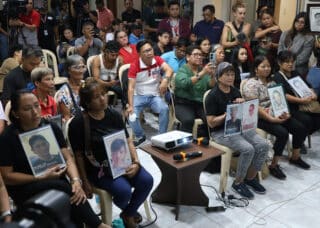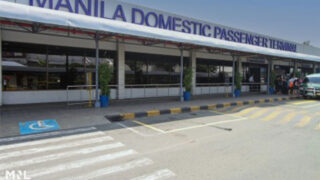Not a few people should find the uproar over the no-contact apprehension policy (NCAP) quite amusing. I, for one, couldn’t stop scratching my head at the arguments advanced by the contending groups from motorists to commuters to politicians, and well, I suppose it’s only a matter of time before religious people should start chiming in.
The lawmaker who fumed that the state monopoly of power is compromised in the government’s entering into partnership with the NCAP service-providers makes us scratch our heads even more. NCAP is only a tool, a piece of technology to capture on video the actual traffic violation but, ultimately, it is still the government that decides to use the technology to impose road discipline. We don’t surrender sovereignty by buying warships from advanced countries. Cops don’t surrender their badges to the company that provided them with guns.
Anyway, I have no problem with no-contact apprehension because, believe it or not, I have never been cited of traffic violation. Not that I claim to be a model citizen, or the perfect driver who can’t make any mistake. I simply follow traffic rules, not for any profound sentiment like respect or love of country. I obey the rules on the road for the heck of it. Simple as that. Actually, ever since I started driving, I fear the thought of having to speak to the traffic policeman and end up losing an argument. Besides, it’s bad for my health to argue with the man with a gun. Today, even though the introduction of the no-contact apprehension scheme had eliminated confrontations between a cop and a motorist, the fear had remained so imbibed in my head I react to traffic rules with unconditional obedience.
For all it’s worth, I have this self-styled rule in driving that works for me, but for lack of the proper word, I should call it “the drainage-ditch philosophy.” It’s simple. I would equate committing a traffic violation to driving my car over a drainage ditch. Now, if only every person behind the wheel should think the same way. No one would encroach into the bike lane if it happened to be a drainage ditch instead of the narrow strip exclusive to bicycles. No one would race to beat the red light if there is a drainage ditch ahead. Otherwise, you’ll be sorry for what would happen. You will probably break your neck or wreck your car or both. I must grudgingly concede that the stiff fines under the NCAP are necessary to put some sense on the hard-headed motorists and by the same analogy, the drainage ditch will have to be very deep or the reckless driver will just run over it. The consequences of our transgressions must sometimes hurt for us to learn our lesson.
I have to hand it to them — the people behind NCAP. At least they are doing something. Maybe it’s an idea whose time has come, or it might be the best way, after years of sparing the rod, to force reckless drivers to learn road discipline by getting them whacked when they deserve it. The NCAP may yet prove to be another challenge to the government to learn to make unpopular decisions, another serious test of the political will. That the no-contact apprehension scheme had substantially reduced the chances of corruption and bribery over traffic violations is already a good start, a better alternative than the experience of the past, where enforcement of traffic laws is entrusted to the enterprising policeman willing to strike a deal with the erring driver to fix the problem. The bigger challenge is keeping the system free of corruption and tempering the technology with a policy of liberality in granting appeals for reduction, or better yet the condonation of penalty that some local governments say they are doing now.
ADEL ABILLAR
Quezon City



